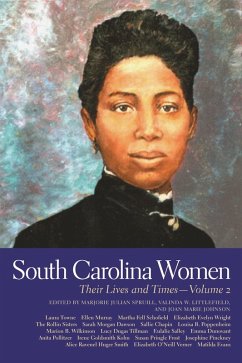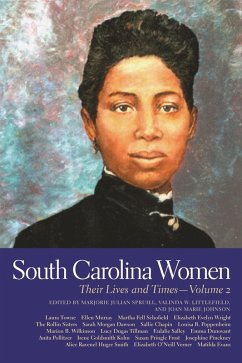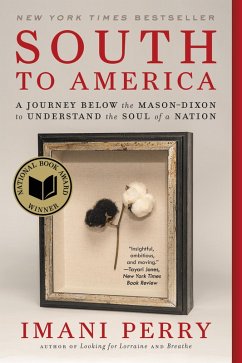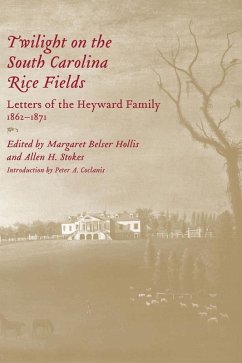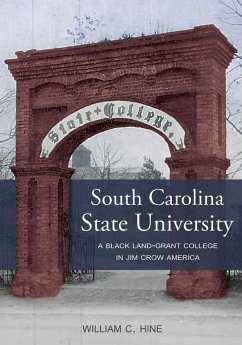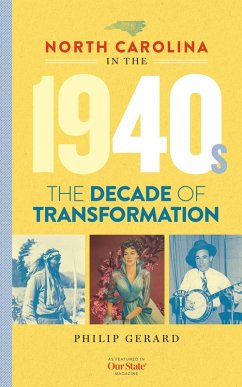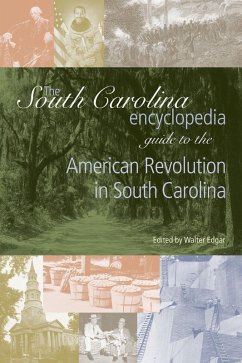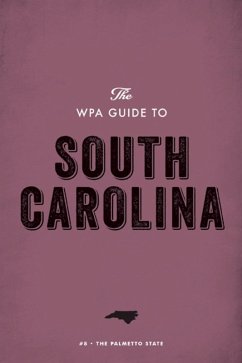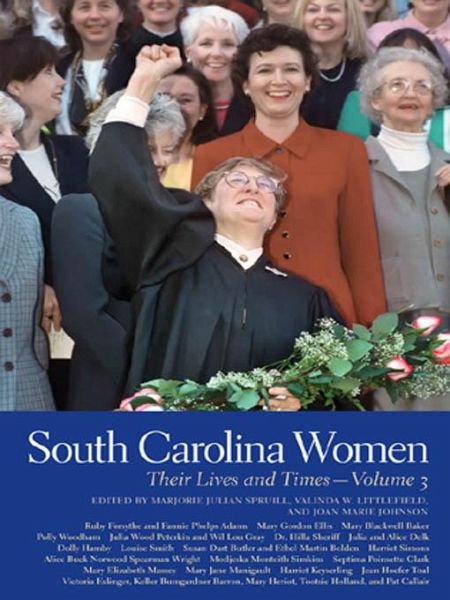
South Carolina Women (eBook, ePUB)
Their Lives and Times, Volume 3
Redaktion: Spruill, Marjorie Julian; Johnson, Joan Marie; Littlefield, Valinda W.
Versandkostenfrei!
Sofort per Download lieferbar
57,95 €
inkl. MwSt.
Weitere Ausgaben:

PAYBACK Punkte
29 °P sammeln!
Covering an era from the early twentieth century to the present, this volume features twenty-seven South Carolina women of varied backgrounds whose stories reflect the ever-widening array of activities and occupations in which women were engaged in a transformative era that included depression, world wars, and dramatic changes in the role of women. Some striking revelations emerge from these biographical portraits-in particular, the breadth of interracial cooperation between women in the decades preceding the civil rights movement and ways that women carved out diverse career opportunities, so...
Covering an era from the early twentieth century to the present, this volume features twenty-seven South Carolina women of varied backgrounds whose stories reflect the ever-widening array of activities and occupations in which women were engaged in a transformative era that included depression, world wars, and dramatic changes in the role of women. Some striking revelations emerge from these biographical portraits-in particular, the breadth of interracial cooperation between women in the decades preceding the civil rights movement and ways that women carved out diverse career opportunities, sometimes by breaking down formidable occupational barriers. Some women in the volume proceeded cautiously, working within the norms of their day to promote reform even as traditional ideas about race and gender held powerful sway. Others spoke out more directly and forcefully and demanded change.
Most of the women featured in these essays were leaders within their respective communities and the state. Many of them, such as Wil Lou Gray, Hilla Sheriff, and Ruby Forsythe, dedicated themselves to improving the quality of education and health care for South Carolinians. Septima Clark, Alice Spearman Wright, Modjeska Simkins, and many others sought to improve conditions and obtain social justice for African Americans. Others, including Victoria Eslinger and Tootsie Holland, were devoted to the cause of women's rights. Louise Smith, Mary Elizabeth Massey, and Mary Blackwell Butler entered traditionally male-dominated fields, while Polly Woodham and Mary Jane Manigault created their own small businesses. A few, including Mary Gordon Ellis, Dolly Hamby, and Harriet Keyserling exercised political influence. Familiar figures like Jean Toal, current chief justice of the South Carolina Supreme Court, are included, but readers also learn about lesser-known women such as Julia and Alice Delk, sisters employed in the Charleston Naval Yard during World War II.
Most of the women featured in these essays were leaders within their respective communities and the state. Many of them, such as Wil Lou Gray, Hilla Sheriff, and Ruby Forsythe, dedicated themselves to improving the quality of education and health care for South Carolinians. Septima Clark, Alice Spearman Wright, Modjeska Simkins, and many others sought to improve conditions and obtain social justice for African Americans. Others, including Victoria Eslinger and Tootsie Holland, were devoted to the cause of women's rights. Louise Smith, Mary Elizabeth Massey, and Mary Blackwell Butler entered traditionally male-dominated fields, while Polly Woodham and Mary Jane Manigault created their own small businesses. A few, including Mary Gordon Ellis, Dolly Hamby, and Harriet Keyserling exercised political influence. Familiar figures like Jean Toal, current chief justice of the South Carolina Supreme Court, are included, but readers also learn about lesser-known women such as Julia and Alice Delk, sisters employed in the Charleston Naval Yard during World War II.
Dieser Download kann aus rechtlichen Gründen nur mit Rechnungsadresse in A, D ausgeliefert werden.




